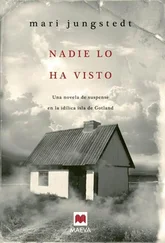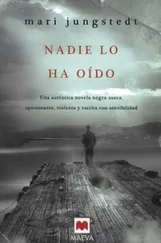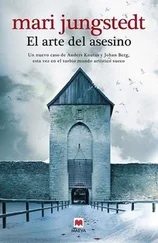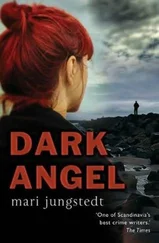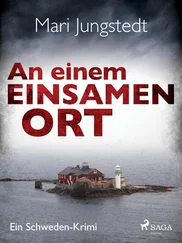She hadn’t made any friends of her own yet, and she didn’t really feel the need to do so. Occasionally, they got together with Stefan’s relatives and acquaintances. She also talked to her classmates at the Swedish lessons she was taking, and she made regular visits to the antenatal clinic. All in all, that was more than enough socializing for her.
Suddenly she noticed a man who looked familiar standing in the queue. He was talking to a boy who couldn’t be more than five or six. She looked more closely, scanning the man’s face.
The man, who looked to be a few years older than her, had a unique appearance. He had a prominent high forehead, light-blue eyes, and seemed to have no eyelashes or eyebrows at all. He also had a slightly protruding jaw. His hair was cut short, and he was wearing carpenter overalls. There was something self-conscious about him, a slight nervousness. Maybe it was the child’s constant questions; maybe it was something else.
He was standing a few yards in front of her, in the queue for the other check-out, but she had a clear view of him because he’d turned round to talk to the boy, who she assumed was his son. All of a sudden he glanced up, and she looked away. He must have noticed that she was watching him; maybe he thought she was flirting.
She couldn’t help taking another look at him. He was staring straight at her as he replied to a question his son had asked. When their eyes met and she simultaneously heard his voice, her body turned to ice. She’d heard that high-pitched, slightly nasal voice before. A long, long time ago. In an entirely different context.
As if struck by a whip, she felt a stinging blow to her forehead. She shut her eyes and opened them again. He was still there, continuing to talk to his son, unaffected. He glanced at her and smiled faintly. He hadn’t recognized her. In reality, that wasn’t so strange. Not strange at all. It was twenty years ago that they’d last met. She had changed more than he had.
She felt sick, overcome by dizziness as her legs began to wobble. She couldn’t bear to stand there any longer. She had to get out. She left the queue and pushed her way past the check-out. Outside the supermarket, she sank down on to a bench. Tears filled her eyes, but she did her best to hold them back. She took long, deep breaths. The terrible pressure she felt in her chest frightened her; she felt as if she was going to die. She was hyperventilating.
A young woman came out and asked her if she was OK. She managed to say she was fine. The woman brought her some water and asked if she was going into labour. Should she ring for an ambulance?
No, she wasn’t going into labour. She just needed to rest for a moment. The woman sat down next to her and held her hand. How considerate she was.
Thoughts were flying through her mind. It was him. There was absolutely no doubt about it. What was he doing here?
She was still having a hard time breathing, and appreciated the concern of the woman, who remained sitting next to her. Not saying anything, not asking any questions.
Suddenly the doors of the supermarket opened and he came out. He didn’t notice her as he walked past with his son and bags of shopping. With the woman’s help, she got to her feet and stared after him. He went over to a white van. On the door it said: Slite Construction, with a phone number.
That was enough.
WHEN KARIN JACOBSSON regained consciousness, everything was quiet. She couldn’t hear the sound of any engine. She was lying in a terribly uncomfortable position, leaning forward, with her back hunched and her head stuck between her knees. Tape had been placed over her mouth, and her wrists and ankles burned from the rope tied around them. It was pitch dark in the small space. Her body ached. She had a splitting headache, and she could taste blood. He must have really hit her hard. It took a moment before she even tried to move, which turned out to be nearly impossible; she felt as if she were held in a vice.
Take it easy , she thought. Stay calm. Keep a cool head. You’re locked up somewhere, and you need to find a way out .
She wondered how much time had passed since she was knocked out. A few minutes? Half an hour? Several hours?
She made an effort to try and make out the shapes in the dark. She managed to lift her head enough to pull herself into an upright position. The headache felt like a migraine and was almost unbearable. She touched the wall with her elbow. The surface felt hard and smooth. She could tell that she was still on the boat, but the silence was so complete that all the passengers must have disembarked by now; presumably, they had reached the harbour in Fårösund. How long would the boat stay docked? Maybe twenty-four hours? How long would it be before Knutas began to wonder why she hadn’t reported back? And before he or any of the others worked out what had happened to her?
Who was Captain Stefan Norrström, and how was he involved in these events? Why had he knocked her out and then locked her up in here? Thoughts whirled through her mind without making any sort of coherent picture.
Jacobsson desperately tried to move her arms and legs, but the rope refused to budge. A sea captain would know knots, of course. It felt impossible for her to get free. She tried rocking back and forth. There was a little space next to her, and she tried to tap on the wall, but she couldn’t hear anything.
To top it all off, she needed to pee.
She listened for some sound. She had no idea where she was on the boat.
Suddenly she heard a ruckus on the other side of the wall. The door opened, and a strong light blinded her. There he stood, right in front of her. He stared at her for a couple of seconds, then slammed the door shut again. She heard the clack of the lock turning.
Wasn’t he even going to let her use the toilet? Give her anything to drink? She felt terribly thirsty after her long hike on Gotska Sandön in the blazing sun. She’d been in such a hurry back at the campsite that she hadn’t filled her water bottles. It had been a long time since she’d had anything to drink, much less any food. Her head felt heavy, and she was starting to feel dizzy. Was he going to leave her here to die? She tried again to loosen the ropes, to move her fingers, hands and feet, but nothing did any good.
For a long time after the door closed, she sat there trying to make out any noises. She heard nothing. It was utterly quiet. Thirst and dizziness were making her confused. She closed her eyes, and her body went numb.
KNUTAS AND KIHLGÅRD took the lead, followed closely by two other police vehicles. They drove north-east at top speed, heading for Kyllaj. Kihlgård had managed to bring along the report on what the police had dug up so far about the investigation into Tanya Petrov’s death.
‘Tell us everything you know,’ commanded Knutas, concentrating on keeping his eyes on the road.
‘Let’s take it from the beginning,’ said Kihlgård. ‘A week after Tanya’s murder, the family returned to Hamburg. Vera had been studying languages at the university, but she gave it up and took a job in a supermarket. Both parents, Sabine and Oleg Petrov, went on sick leave. When autumn came, more specifically, on 22 October 1985, Oleg committed suicide. He threw himself in front of an express train that was just pulling into Hamburg Hauptbahnhof. He died instantly.’
‘What an awful way to die.’
‘After that, things starting going downhill for the mother too. She became addicted to painkillers, and she never returned to her job. The following year, in February 1986, she retired on a disability pension. She moved to a smaller flat in a suburb of Hamburg, but her daughter Vera didn’t move with her. She lived in several different places in the city while she worked at the supermarket. Two years after the murder, in August 1987, she went back to university and completed her studies. After that, she spent many years working as a language teacher at a school in Hamburg. Until she moved to Sweden, that is, two years ago.’
Читать дальше


